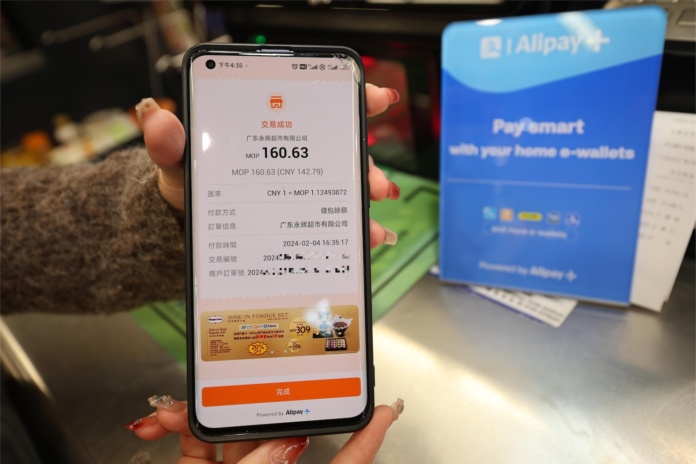There has been a significant surge in daily mobile payment transaction volume in mainland China among Macau residents during the fourth quarter of last year, with a more than fourfold increase compared to the previous quarter, MPay data reveals.
‘Since the mainland resumed full clearance with Hong Kong and Macau last year, there has been a noticeable uptick in Macau residents traveling to mainland China for leisure and consumption,’ the mobile payment service held by Macau Pass pointed out
‘Zhuhai, Zhongshan, and Jiangmen emerged as the most favored mainland cities among Macau residents’.
Macau Pass did not disclose the full amount of cross-border transactions carried out in the covered period.
In September 2023 Macau Pass announced that its e-wallet Mpay users will now be able to make payments in both mainland China and Hong Kong after a cooperation agreement with Alipay+.
According to Macau Pass, this growing trend of Macau residents traveling north for leisure and consumption is further facilitated by the convenience of mobile payments, with the MPay service now allowing Alipay service payments, with direct currency exchange for bank account holders in the SAR.
Previously holding a bank account within mainland China was a requirement for Macau residents to be able to register and carry out Alipay payments.
‘The increasing frequency of Macau residents traveling north for leisure and consumption, coupled with the adoption of mobile payments, signifies a growing trend that is reshaping cross-border consumer behaviors and preferences,’ Macau Pass added.
MPay became the first overseas financial institution headquartered outside China to be authorized for cross-border use in mainland China in 2019.
AGTech, an Alibaba affiliate, acquired Macau Pass Holding for HKD778 million (US$99.6 million) in 2022, with the company having unveiled plans to expand Mpay services to additional foreign countries in the third or fourth quarter of 2023, with hopes to be available in more than 40 countries by the end of 2024.
It now covers more than 40 countries, including the United States, the United Kingdom, Switzerland, France, the UAE, Australia, Singapore, Japan and South Korea.





















